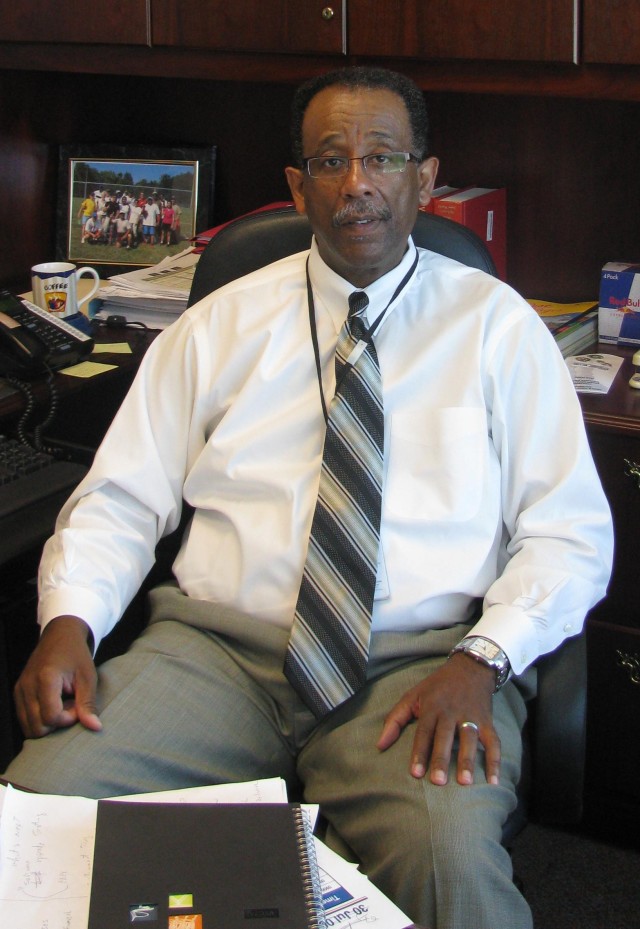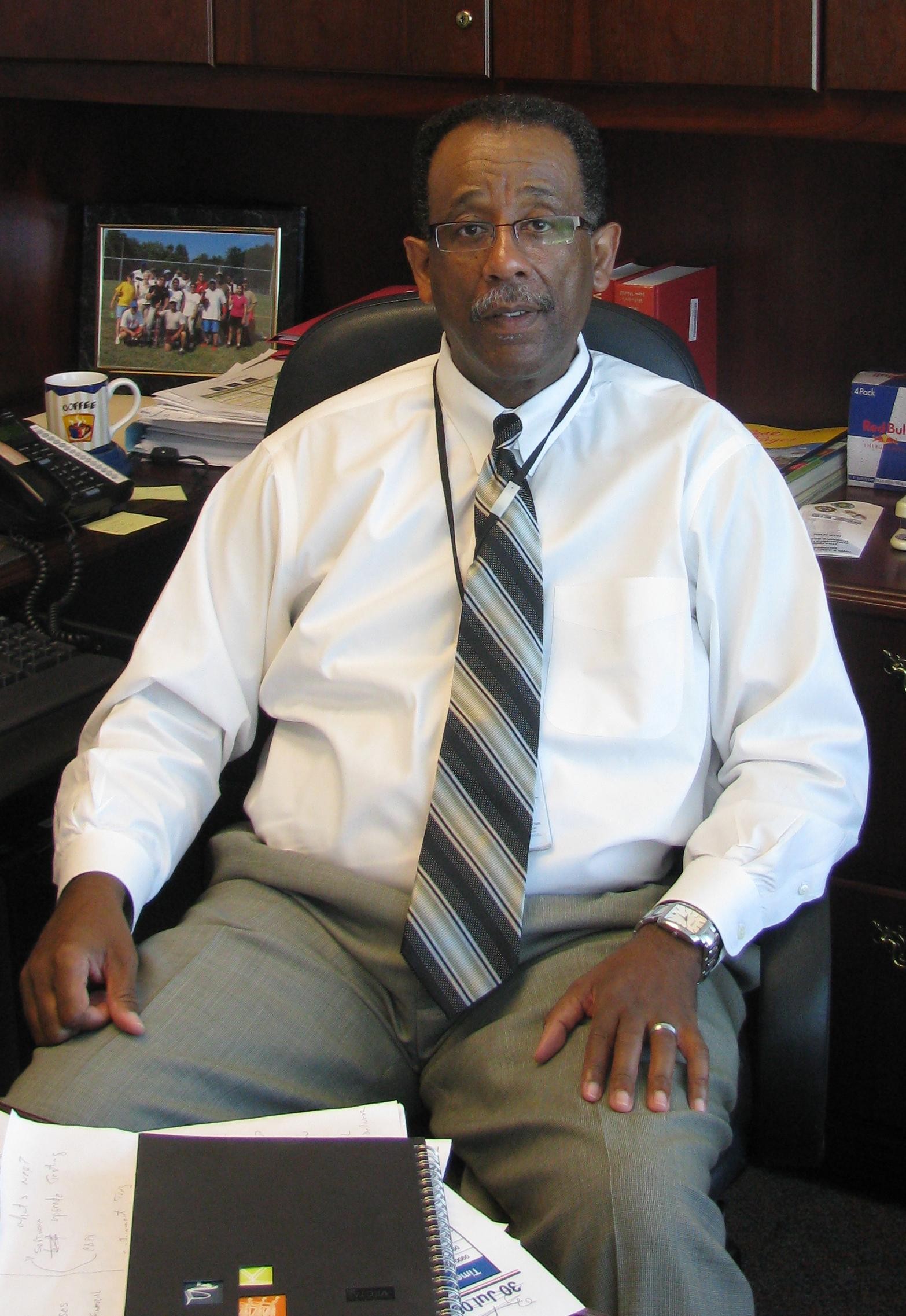Artro Whitman has been talking about logistics modernization for a long time. After 10 years of telling others what was to come, he has the pleasure of helping to write the next chapter of the Logistics Modernization Program as its new director.
"I was a change agent for LMP back in 1999," he said. "A change agent is an individual who talks to people about what LMP is about, trying to get the community aware of what is going to take place. Primarily we were trying to make the command aware of the change that was coming and how it was going to impact them. It started the framework... I've been working this a long time."
Whitman stepped into his new position at the end of June. He previously was the director for Materiel and Supply Chain Management at AMCOM Integrated Materiel Management Center before making the move to LMP to succeed the departing Cathy Dickens.
Whitman has a long history at Redstone. He has spent more than 30 years working on post. The bulk of that time was spent at IMMC, with a brief hiatus during the time he worked with the creation of a new office.
"Of the 31 years I've spent with the government, 28 of those have been with the IMMC," he said. "There was a short break there for two or three years when I went to set up the Lean office (from 2001-03). Shortly after that I returned."
His government career began a few years after college. Whitman had graduated from the University of Alabama-Huntsville in 1976 with a bachelor's in sociology. While his planned path would have taken him in another direction, the practicalities of the real world intervened.
"I thought I wanted to be a lawyer," he said. "But I was married and I needed to get a job. I was in the Air Force for a while. Then I went to work for TVA (Tennessee Valley Authority). I worked at the Brown's Ferry Nuclear Plant. Then I took a job at Redstone in Finance."
Whitman worked as a voucher examiner before transferring to IMMC through a training program. Now, having spent so long in IMMC, Whitman knows the day-to-day business of the LMP's applications and the people who use them.
"Most of the functions and processes, especially the business areas, are worked in that (IMMC) directorate," he said. "I have a vested interest in seeing that the plan is in place so that the customers can make the transition to be able to do the things they're required to do."
The dedication of Team Redstone in the implementation of LMP and their dedication to training have impressed him.
"Going through this transition has really showed the professionalism of the people in this command," he said. "If you asked me a year ago I would have said I was very concerned about how of some of our seasoned people would receive this new system. But they're been very receptive... As we continue to find all of the advantages to using this new system I think it will make us better managers who can better support our Soldiers. It's really bringing us into the 21st century."
He's excited about the opportunities the LMP provides its users to see the bigger picture. He said it gives them a bigger understanding of how materiel is managed. That grasp will make for a better, more efficient future. It isn't without challenges though.
"Foremost, we have to get the tools and training for our managers and workers to do their jobs," he said. "With this system comes an enormous appetite for data and an emphasis on data. But we have to be able to understand and interpret the data and why it says what it says. The old CCSS (Combined Command Sustainment System) was forgiving in that you could go back and correct things. This system is not as forgiving. It is so data driven that you have to ensure the accuracy of what you put in. You have to understand the importance of what you're doing in it."
Whitman identifies the next events for LMP as software upgrades.
"Our job is to make certain we are successful in this deployment, to make sure the processes are working correctly, that individuals are getting the products and services that they need," he said. "We want as successful a deployment for our upgrade as we were getting online. That means we're going to do the same things. We're going to take the same steps. We want to get individuals trained so they can go out and help our end users."
He said his mission is "to ensure we have a smooth transition to sustainment. When all processes associated with the procurement and rebuild of AMCOM spares are fully operational, this will ensure that the readiness objectives of our fielded fleet are met."
Whitman and his wife, Constance, have a son, Ashon, and daughter, Shantae. He also enjoys spending his time with his two granddaughters, Azadra, 12, and Aliyah, 18 months. Always a sports enthusiast, Whitman now channels that interest into coaching.
"I was active in playing basketball," he said. "I still enjoy it. I like coaching my granddaughter's teams, helping out and being involved."


Social Sharing